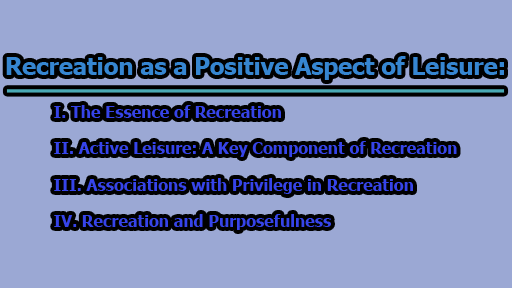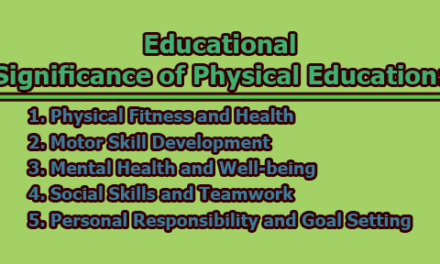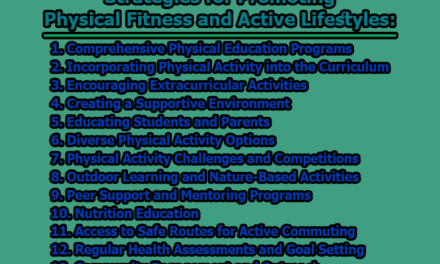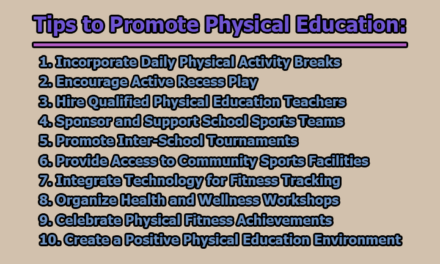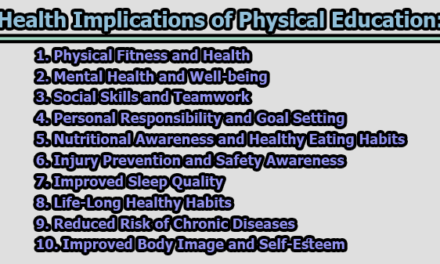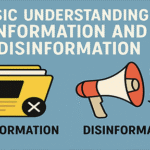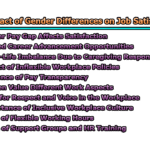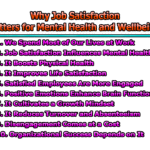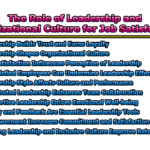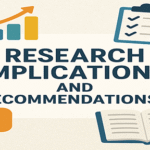Recreation as a Positive Aspect of Leisure:
Leisure is an integral part of human life, providing individuals with opportunities to relax, unwind, and engage in activities that bring joy and fulfillment. Within the realm of leisure, recreation stands out as a particularly positive aspect, offering numerous physical, mental, and social benefits. In this comprehensive article, we will delve into recreation as a positive aspect of leisure: active leisure, associations with privilege, and purposefulness.
I. The Essence of Recreation: Recreation, at its core, represents a fundamental human need for respite and rejuvenation from the demands of everyday life. It is a time when individuals engage in activities solely for the purpose of enjoyment, relaxation, and self-fulfillment, free from the constraints of work or obligation. This essential aspect of leisure encompasses a wide spectrum of experiences, each offering unique benefits to the mind, body, and soul.
A. The Physical Benefits of Recreation:
- Physical Health and Well-being: Recreation serves as a sanctuary for the body. Through activities like hiking, swimming, or playing sports, individuals improve their cardiovascular fitness, build muscle strength, and enhance flexibility. The act of moving, stretching, and pushing one’s physical limits not only keeps the body in prime condition but also elevates overall well-being.
- Stress Reduction: In the whirlwind of daily life, stress often takes center stage. Recreation, however, offers a much-needed escape. Engaging in enjoyable activities stimulates the release of endorphins, the body’s natural mood elevators, resulting in a significant reduction in stress and anxiety levels. Whether it’s a serene walk in the park or an exhilarating game of tennis, recreation helps individuals find solace amid life’s challenges.
- Enhanced Immunity: The regular pursuit of recreational activities has been closely associated with a strengthened immune system. Engaging in these activities bolsters the body’s ability to ward off illnesses and diseases, offering yet another compelling reason to prioritize recreation in one’s life.
B. The Mental Benefits of Recreation:
- Cognitive Function: The mind, much like the body, thrives on stimulation and activity. Recreation engages the brain, sharpening cognitive skills and promoting mental acuity. Activities such as puzzles, board games, or intellectual hobbies like reading or painting provide a mental workout, ensuring that the mind remains agile and vibrant.
- Stress Management: Mental well-being is intrinsically tied to the ability to manage stress effectively. Recreation serves as a haven for mental respite. By stepping away from the pressures of daily life, individuals allow their minds to clear, ultimately returning to their responsibilities with greater focus and resilience.
- Creativity and Innovation: Many recreational pursuits are inherently creative endeavors. Engaging in activities like painting, writing, or making music provides an outlet for self-expression and innovation. These pursuits not only nurture creativity but also provide a sense of fulfillment derived from the act of creation itself.
C. The Social Benefits of Recreation:
- Building Relationships: Humans are inherently social creatures, and recreation serves as a conduit for building and nurturing relationships. Engaging in recreational activities often involves social interaction, providing opportunities to forge new friendships and deepen existing ones. Whether it’s joining a sports team or participating in a book club, recreation fosters a sense of connection with others who share similar interests.
- Improved Communication: Team-based recreational activities, such as team sports or group travel, contribute significantly to the development of communication skills. Effective communication is essential not only in recreational contexts but also in various aspects of life, including work and personal relationships.
- Sense of Belonging: Many people find a sense of belonging and community through their participation in recreational clubs or groups. This feeling of belonging is vital for mental and emotional well-being, providing individuals with a support system and a sense of purpose beyond their immediate responsibilities.
In essence, recreation encompasses a diverse array of experiences, each with its own unique set of benefits. It offers a holistic approach to well-being, addressing the physical, mental, and social dimensions of human existence. By recognizing the intrinsic value of recreation in our lives and prioritizing it as a means of self-care and personal growth, individuals can unlock the full potential of this essential aspect of leisure.
II. Active Leisure: A Key Component of Recreation: Active leisure is a dynamic and invigorating subset of recreation, characterized by physical activity and engagement. Unlike passive forms of leisure, active leisure involves individuals actively participating in activities that challenge their physical capabilities while simultaneously providing a sense of enjoyment and relaxation. Active leisure plays a pivotal role in enhancing physical fitness, mental well-being, and social interaction, making it a cornerstone of recreational experiences.
A. The Role of Active Leisure in Physical Fitness:
- Sports and Physical Exercise: Active leisure often revolves around sports and physical exercise, making it an effective avenue for improving physical fitness. Engaging in activities like jogging, swimming, or participating in team sports promotes cardiovascular health, enhances muscular strength, and increases flexibility. These activities not only keep the body in excellent condition but also contribute to a longer and healthier life.
- Outdoor Adventures: Beyond the confines of traditional sports, active leisure encompasses outdoor adventures. Activities such as hiking, rock climbing, cycling, and kayaking offer not only physical challenges but also opportunities to connect with nature. The experience of conquering natural landscapes not only enhances fitness but also provides a deep sense of fulfillment and communion with the environment.
B. The Psychological Benefits of Active Leisure:
- Flow State: Active leisure often leads participants into a state of “flow,” where they become completely absorbed in the activity at hand. This heightened state of concentration and enjoyment results in a profound sense of happiness and accomplishment. Whether it’s mastering a complex yoga pose or executing a perfect golf swing, the pursuit of active leisure can transport individuals into this flow state, offering a break from the mundane and fostering a deep sense of well-being.
- Stress Reduction: The physical exertion required during active leisure leads to the release of endorphins, the body’s natural stress reliever. Engaging in active leisure activities reduces stress levels and enhances mental well-being. The act of pushing one’s physical limits, combined with the sense of achievement that accompanies it, can provide a powerful antidote to the pressures of daily life.
- Self-esteem and Confidence: Achieving goals in active leisure pursuits significantly boosts self-esteem and self-confidence. Whether it’s completing a marathon or learning to dance, each achievement reinforces a positive self-image and the belief that one can overcome challenges. This newfound self-assuredness often spills over into other aspects of life, leading to greater personal growth and success.
C. The Social Aspect of Active Leisure:
- Team Sports: Many active leisure activities involve team dynamics. Engaging in team sports fosters camaraderie, teamwork, and the development of essential social skills. These experiences teach individuals how to work collaboratively with others, communicate effectively, and navigate the complexities of group dynamics, skills that are invaluable in both recreational and professional settings.
- Group Activities: Active leisure often entails participation in group activities, providing opportunities to meet new people and forge lasting friendships. Whether it’s joining a running club or taking part in a group fitness class, these shared experiences create bonds and a sense of belonging that enrich one’s social life.
Active leisure stands as a testament to the synergy between physical activity and leisure, demonstrating that recreation need not be passive to be enjoyable. The dynamic nature of active leisure not only enhances physical fitness and mental well-being but also strengthens social connections, making it a cornerstone of a fulfilling and well-rounded recreational lifestyle. By embracing active leisure, individuals can harness the benefits of physical engagement while simultaneously indulging in the pleasures of leisure, creating a harmonious blend of vitality and relaxation in their lives.
III. Associations with Privilege in Recreation: While recreation is a universally valued aspect of human life, it is essential to recognize that access to recreational opportunities is often influenced by various forms of privilege. These privileges, which can be based on factors such as socioeconomic status, education, and geographical location, can significantly shape an individual’s ability to engage in recreational activities. Understanding these associations is critical for fostering greater equity and inclusivity in the realm of recreation.
A. Socioeconomic Status and Recreation:
- Access to Resources: One of the most notable associations between privilege and recreation is access to resources. Individuals with higher socioeconomic status often have the financial means to access a broader range of recreational activities. This includes affording memberships to exclusive clubs, purchasing equipment for hobbies, or having the financial flexibility to travel for leisure. In contrast, those with fewer financial resources may find their recreational options more limited.
- Leisure Time: Socioeconomic status also influences an individual’s leisure time. Those in higher-paying jobs or professions may have more flexible work schedules, allowing for more leisure time. Conversely, individuals in lower-paying jobs or those working multiple jobs may have limited time available for recreation. This discrepancy in leisure time can affect the depth and breadth of recreational experiences.
B. Education and Recreation:
- Knowledge and Skill Acquisition: Education plays a pivotal role in shaping an individual’s recreational opportunities. Higher levels of education often provide individuals with the knowledge and skills needed to excel in specific recreational activities. For example, a well-educated person may be more inclined to appreciate classical music or have the skills to participate in intellectually stimulating hobbies like debate or chess.
- Cultural Capital: Cultural capital, which encompasses knowledge of arts, literature, and other cultural elements, is closely tied to education. Those with higher levels of education tend to have broader exposure to various forms of recreation, from attending art exhibitions to enjoying opera performances. This exposure often leads to a more diverse range of recreational interests.
C. Geographical Location and Recreation:
- Urban vs. Rural Disparities: Geographic location can significantly impact access to recreational opportunities. Urban areas tend to offer a more extensive array of recreational facilities and activities, ranging from museums and theaters to sports clubs and fitness centers. In contrast, rural areas may have fewer recreational options readily available. This urban-rural divide can limit the types of recreation accessible to individuals based on their geographic location.
- Natural vs. Urban Settings: Geographic location also influences the types of recreational activities available. Rural areas often provide more opportunities for outdoor recreation, such as hiking, fishing, or camping, due to their proximity to natural landscapes. Urban settings, on the other hand, may have a richer cultural and arts scene, offering opportunities for theater, music, and fine dining.
Understanding these associations between privilege and recreation is essential for promoting equitable access to recreational opportunities for all members of society. Recognizing that barriers to access exist and taking proactive measures to address them can help ensure that everyone has the chance to enjoy the physical, mental, and social benefits of recreation. Initiatives such as subsidized programs, community outreach, and educational efforts can help bridge the gap and make recreation more inclusive and accessible to individuals from all walks of life. Ultimately, fostering a society where recreation is a source of joy and enrichment for everyone is a goal worth pursuing.
IV. Recreation and Purposefulness: Recreation is far more than mere leisure; it is a powerful catalyst for fostering a deep sense of purposefulness in life. Engaging in recreational activities can imbue individuals with a sense of direction, meaning, and fulfillment that extends beyond the realm of mere enjoyment. In this section, we will explore how recreation contributes to personal growth, self-discovery, and the greater good, ultimately enriching lives by instilling a profound sense of purpose.
A. Setting and Achieving Goals:
- Personal Growth: Recreation offers individuals the opportunity to set and pursue personal goals. Whether it’s training for a marathon, mastering a new musical instrument, or achieving a high score in a video game, these objectives provide a sense of purpose and direction. The pursuit of these goals leads to personal growth, as individuals acquire new skills, overcome challenges, and develop a sense of achievement.
- Life Satisfaction: Achieving goals in recreational pursuits contributes significantly to an individual’s overall sense of life satisfaction. These achievements serve as tangible evidence of one’s capabilities, fostering self-esteem and a belief in one’s capacity to overcome obstacles in other areas of life.
B. Self-Discovery and Identity:
- Self-Expression: Many recreational activities provide a platform for self-expression. Whether it’s through painting, writing, or engaging in hobbies like photography or gardening, individuals can express themselves creatively and authentically. These creative outlets allow for the exploration of personal interests and passions, leading to a deeper understanding of one’s self.
- Identity Formation: Engaging in recreational pursuits often contributes to the formation of one’s identity. It allows individuals to define themselves based on their interests, values, and passions. For example, someone who dedicates themselves to environmental conservation through outdoor recreation may identify as an environmentalist. This sense of identity can be a source of pride and purpose.
C. Contribution to Society:
- Volunteerism and Community Engagement: Recreation frequently intersects with opportunities for volunteerism and community engagement. Many individuals find purpose in using their recreational skills and interests to give back to their communities or to support causes they are passionate about. Whether it’s coaching a youth sports team, participating in environmental cleanup efforts, or volunteering at a local animal shelter, these activities provide a sense of fulfillment derived from contributing to the greater good.
- Inspiring Others: Passion for recreational activities can be contagious. By pursuing their interests with dedication and enthusiasm, individuals inspire and motivate others to pursue their own passions and goals. The act of sharing one’s expertise and enthusiasm can lead to a sense of purpose as individuals realize the positive impact they have on others.
Recreation, when approached with intention and mindfulness, can serve as a guiding force in one’s life. It offers the opportunity to set and achieve meaningful goals, facilitating personal growth and a sense of accomplishment. Additionally, recreation provides a canvas for self-discovery, allowing individuals to explore their interests and passions, ultimately shaping their identity. Finally, by leveraging recreational pursuits for the betterment of society, individuals can find a deep sense of purpose in contributing to the well-being of their communities and inspiring others to embark on their own journeys of self-discovery and purpose.
In conclusion, recreation, particularly within the realms of active leisure, holds a pivotal role as a positive aspect of leisure, enriching the lives of individuals in multifaceted ways. It serves as a gateway to physical well-being, fostering mental clarity, and nurturing social connections. However, it is imperative to acknowledge the associations between privilege and access to recreational opportunities, recognizing the disparities that exist. Addressing these disparities is essential to ensure that recreation remains inclusive and accessible to all. Furthermore, the power of recreation extends beyond enjoyment, as it provides a platform for personal growth, self-discovery, and a profound sense of purpose. By embracing recreation intentionally, individuals can unlock the transformative potential of this vital facet of leisure, leading to lives that are not only healthier and happier but also imbued with a deeper sense of meaning and fulfillment.
References:
- Driver, B. L., Brown, P. J., & Peterson, G. L. (1991). Benefits of leisure. Venture Publishing, Inc.
- Iso-Ahola, S. E. (1980). The Social Psychology of Leisure and Recreation. Wm. C. Brown.
- Coakley, J. (2019). Sports in Society: Issues and Controversies. McGraw-Hill Education.
- Stebbins, R. A. (2007). Serious Leisure: A Perspective for Our Time. Transaction Publishers.
- Carruthers, C. P., Hood, C. D., & Hassmén, P. R. (2002). Developing Leadership Skills through Sport and Recreation Activities: The Importance of Play. Therapeutic Recreation Journal, 36(4), 314-329.
- Louv, R. (2008). Last Child in the Woods: Saving Our Children from Nature-Deficit Disorder. Algonquin Books.
- Putnam, R. D. (2000). Bowling Alone: The Collapse and Revival of American Community. Simon & Schuster.
- McHugh, M. L. (2012). Interrater reliability: the kappa statistic. Biochemia Medica, 22(3), 276-282.
- Anderson, L., Heyne, L., Medina, R., & Markee, N. (2006). Introduction to Leisure Services: Career Perspectives. Sagamore Publishing.
- Csikszentmihalyi, M. (1990). Flow: The Psychology of Optimal Experience. Harper & Row.
- Seligman, M. E. P. (2002). Authentic Happiness: Using the New Positive Psychology to Realize Your Potential for Lasting Fulfillment. Free Press.
- Ryan, R. M., & Deci, E. L. (2000). Self-determination theory and the facilitation of intrinsic motivation, social development, and well-being. American Psychologist, 55(1), 68-78.
- Putnam, R. D. (2015). Our Kids: The American Dream in Crisis. Simon & Schuster.
- Brown, B. B., & Perkins, D. D. (1992). Disruptions in place attachment. In I. Altman & S. M. Low (Eds.), Place Attachment (pp. 279-304). Plenum Press.
- Putnam, R. D. (2010). Better Together: Restoring the American Community. Simon & Schuster.

Assistant Teacher at Zinzira Pir Mohammad Pilot School and College

